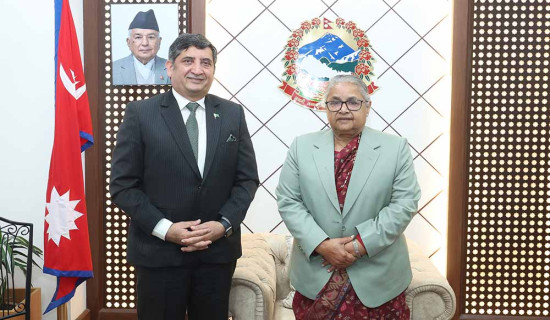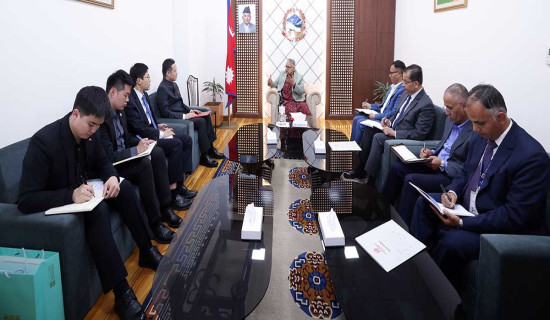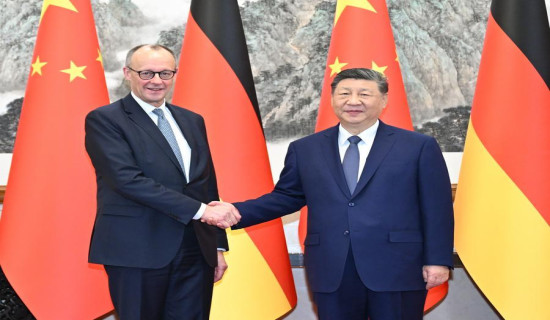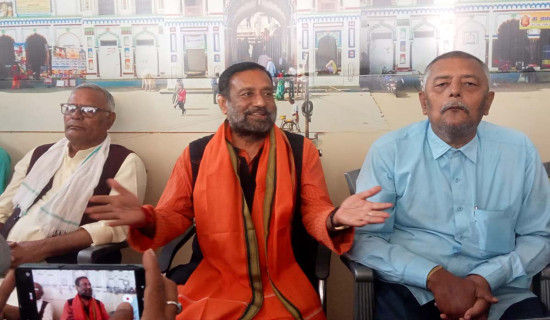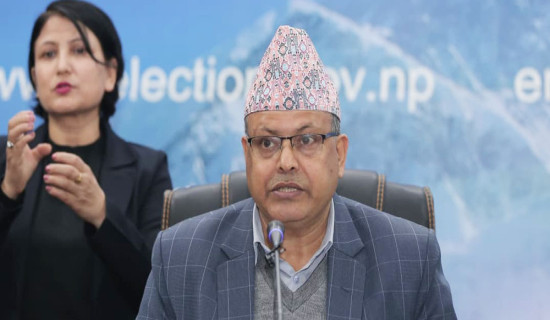- Saturday, 28 February 2026
Accelerate TJ Process
Bini Dahal
Seventeen years have completed since the signing of the Comprehensive Peace Agreement (CPA). Inked between the then government and the Communist Party of Nepal (Maoist), the accord aimed at making an end to the decade-long armed conflict, establishing durable peace and stability in the country. Apart from managing arms and ex-Maoist combatants, the agreement also includes provisions for delivering transitional justice to victims and families. According to the agreement, the country had to set up the Commission for Truth and Reconciliation (TRC) and the Commission of Investigation on Enforced Disappeared Persons (CIEDP).
Transitional justice is basically concerned with addressing human rights violations and building peace and security in the society and the country. This form of justice is considered an important step for every society and country affected by conflict. Without delivering transitional justice to the families of those killed or persons tortured, no society can achieve sustainable peace.
Nepal has failed miserably when it comes to providing transitional justice to those in need. Only after eight long years of the signing on the agreement, the TRC and the CIEDP were established. But these mechanisms have not been successful in their endeavours. The Act on Commission on Investigation of Disappeared Persons, Truth and Reconciliation, 2014 had some controversial provisions such as giving amnesty even to the perpetrators of serious human rights violations.
So, the conflict victims, civil society members and the international community stood against the Act, calling for an amendment to its controversial provisions.
Even the Supreme Court (SC) handed down its verdict, ordering the government to introduce a bill to amend the Act so as to bring the committers of gross human rights violations to justice.
An amendment bill has been under consideration in the federal parliament since March. The bill has remained stuck in the parliament for long because of a lack of political consensus. As the top leaders of the ruling parties and the main opposition CPN-UML have lately agreed to forge a consensus on this matter, the bill is likely to get through from the House in its upcoming session. It is worth noting that the matter failed to advance in a desirable matter because of lack of a strong commitment and will on the part of political parties and their leaders.
Because justice delayed is justice denied, it would not be wrong to say that we are already way behind when it comes to providing justice for the armed conflict victims. And the state of indecision on this vital matter may further slow down the whole process. During his recent official visit to Nepal, UN Secretary-General Antonio Gutteres said that the world body was ready to support Nepal in her journey towards completing the transitional justice process. This has for sure caught the attention of the international community, and also puts pressure upon the government and the political parties to move the process ahead without further delay.
The government and the concerned stakeholders must ensure that transitional justice in Nepal is in full compliance with international practices and norms. It must be victim-centric. Countries like Rwanda, which faced serious genocides, were able to head towards attaining transitional justice through community-based court. Nepal also needs to learn from nations such as Rwanda when it comes to providing the transitional justice and live up to its status of being a democratic nation and ensure that justice prevails in the country. This can be done through concerted efforts of multi-stakeholders.









-original-thumb.jpg)

